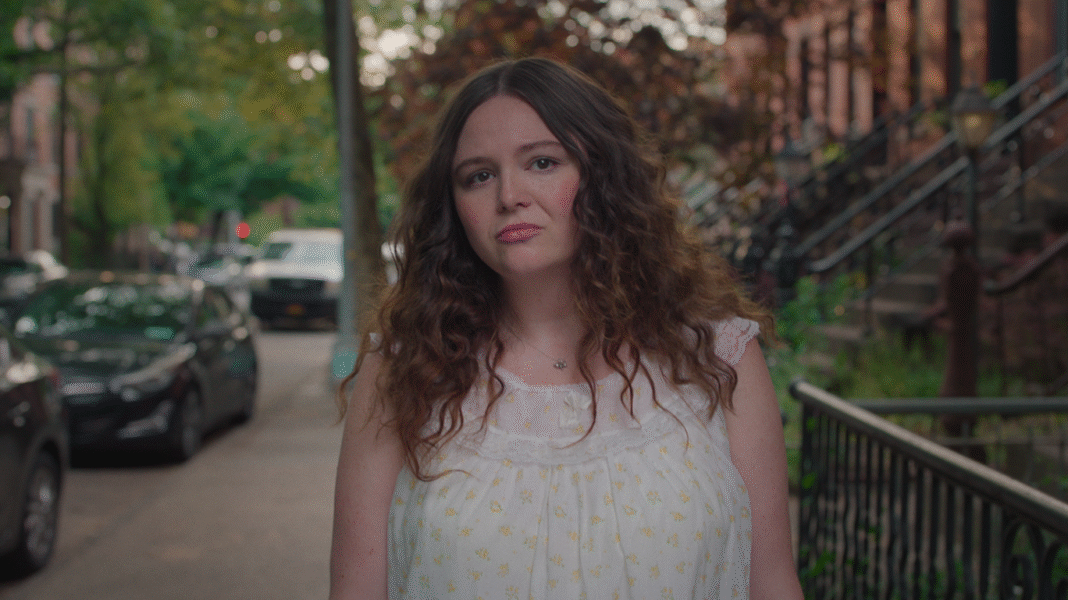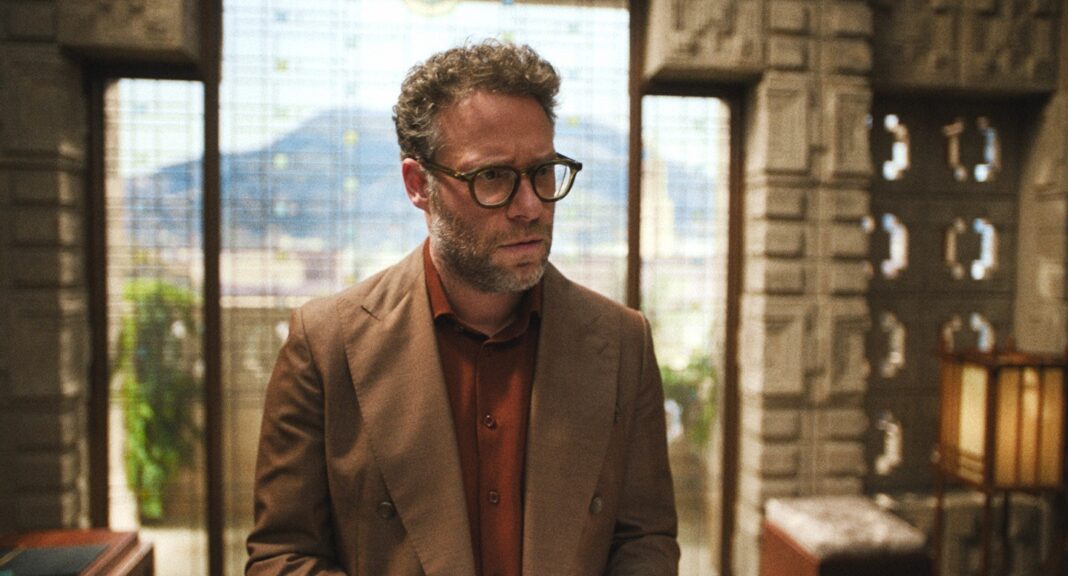New projects from those who have established particular reputations with their past TV or film work bring with them certain expectations. Megan Stalter has been stealing scenes throughout much of the first four seasons of Hacks in her supporting role as someone with an incredible inability to read the room, and Lena Dunham is well-known for the TV series Girls. Following the short-lived Camping, Dunham returns behind the scenes of Too Much, which feels like the perfect showcase for Stalter’s Hacks character but instead gives her something substantially different and equally worthwhile to work with and develop.
Jessica (Stalter) is not in good shape after the dumpster fire end to her relationship with Zev (Michael Zegen). When the chance to get transferred to London for work presents itself, she thinks it might well be the escape and fresh start she needs. But the disappointment of an “estate” where she’s supposed to stay is the first indicator that this isn’t going to be that, with an uphill battle to adjust to some cultural norms and a whirlwind part-friendship, part-romance with Felix (Will Sharpe), a musician looking for his own personality and life makeover.
Too Much introduces two key devices in its first episode that it doesn’t fully stick with throughout the course of its first season, but they’re helpful anchors to understand Jessica as a character. The first is that she imagines interactions and meetings like they’re scenes in the movies that she loves, be it a romantic comedy or British period piece, evoking Dunham’s film Catherine Called Birdy which was a surprisingly good fit for someone who typically traffics only in modern-day sardonic comedy. The second, which does persist much more consistently, is that she narrates and records videos venting about everything that she believes Zev’s new influencer girlfriend Wendy Jones (Emily Ratajkowski) has taken from her – addressed directly to Wendy, a woman she doesn’t even know but who occupies so much of the space in Jessica’s brain.
The show’s title and star might make some believe that this is merely Stalter bringing her admittedly fantastic Hacks part to a new show, which sounds in some ways like the same setup as Emily in Paris. Fortunately, it’s much more than that, and watching Stalter is a delight since she’s rarely actually the craziest one in the room. She’s unhappy with her situation and does choose some inappropriate moments to share how she’s feeling, but overall, she’s just direct in a way that’s not abrasive. Several episodes in, Felix perfectly explains the show’s title: “You’re too much like it’s a good thing, just the right amount and then a little more.”
After her supporting work in Hacks and her starring turn in Cora Bora, Stalter is absolutely deserving of a lead role, and she has an excellent scene partner to share it all with in a story that isn’t only about her character. Sharpe will be most familiar to American audiences for a far more tightly-wound role in season two of The White Lotus, and it’s great to see him let loose and play someone much messier here. It’s engaging – and sometimes quite worrisome – to watch these two try to navigate life without much direction, alternately communicating too much and too little as they encounter obstacles with the potential to throw them entirely off-course.
In addition to its terrific leads, Too Much boasts a staggering supporting cast that includes filmmaker and past Dunham collaborator Janicza Bravo as Jessica’s new coworker Kim, Richard E. Grant as her eccentric but detached new boss, and Naomi Watts, who is easily one of the show’s most valuable players even with limited screen time, as his wife. Dunham, Rita Wilson, and Rhea Perlman are a fun group that play Jessica’s sister, mother, and grandmother, respectively, who all have their hangups and wacky wisdom to share about life and love. Dunham’s Catherine Called Birdy star Andrew Scott is also a typically welcome and entertaining standout in his appearances as a charismatic client of Jessica’s.
Girls was a show for its particular moment in time, and this one feels in some ways more timeless, with Jessica glued to her phone when she’s alone but otherwise surprisingly capable of being present in the moment, even if it’s where she’d really rather not be and her mind immediately takes leaps if she ever has a second to stop and get distracted from reality. Stalter is charming, and it’s precisely because she constantly stops short of being “too much” that this show works. Dunham is and always has been a sharp writer, and teaming up with her own romantic partner, her husband Luis Felber, proves to be a very productive choice. Too Much isn’t anything earth-shatteringly new, but it’s a more than sufficiently enticing, inviting, and enjoyable look at, as Jessica so eloquently describes adulthood, a series of doing things you don’t want to.
Series Rating: 8/10



